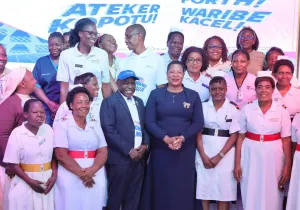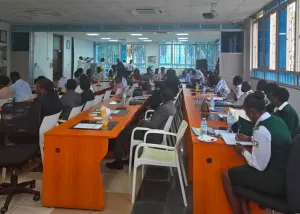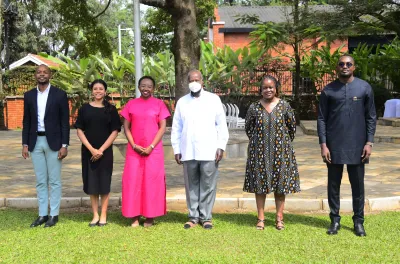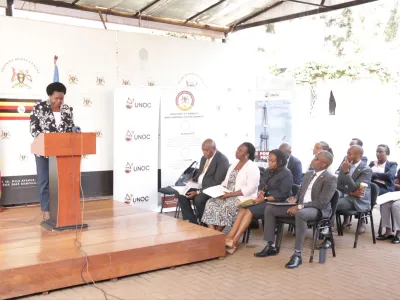
The High Court has dismissed a lawsuit filed by K-Solutions Limited against the Attorney General over a disputed government tender, ruling that the company failed to follow legally mandated procurement dispute resolution procedures.
Justice Simon Peter M. Kinobe, in his judgment, declared K-Solutions’ suit “incompetent and wrongly before court,” underscoring that procurement complaints must first be addressed by administrative bodies established under the Public Procurement and Disposal of Public Assets (PPDA) Act before they can be brought to the High Court.
“This suit is an attempt at challenging the decision of the procuring entity in the guise of a negligence claim,” Justice Kinobe stated, adding, “Court cannot invoke its inherent powers to aid an errant litigant looking for a remedy that circumvents clear provisions of law!”
K-Solutions had sued the government, alleging it was unfairly denied a tender floated by the Ministry of Water and Environment on July 27, 2020, for the supply and installation of hydro-metric and flow measuring equipment. The company, one of three bidders, claimed to be the lowest bidder but asserted it was neither informed of the contract award nor given an opportunity to challenge the decision within the PPDA timeline.
The company sought declarations of wrongdoing, compensation for lost business, and special damages amounting to UGX 50 million. K-Solutions argued that by the time it learned of the contract award, the appeal period had elapsed, effectively locking it out of remedies under the PPDA system.
However, the Attorney General countered that the suit was improperly before the court, asserting that the PPDA Act mandates bidders to first seek redress through the procurement tribunal or apply for judicial review where applicable. The defense emphasized that K-Solutions had access to these remedies but failed to utilize them.
Justice Kinobe concurred with the Attorney General, referencing Section 91 of the amended PPDA Act, which outlines a structured dispute resolution process. This process begins with complaints to the accounting officer, followed by appeals to the tribunal, and only then to the High Court—and strictly on points of law.
“The intention of Parliament was to ensure that an aggrieved party had an in-house remedy before proceeding to the High Court,” the judge explained. “The High Court is the final arbiter on procurement disputes, but only by way of appeal on legal grounds not as a court of first instance.”
Justice Kinobe also criticized K-Solutions for attempting to disguise the case as a tort of negligence, thereby sidestepping the established statutory procedure. “In today’s legal framework, court cannot permit parties to evade procurement laws by merely rebranding their grievances,” he added.
The court determined that all the remedies K-Solutions sought could have been pursued through the PPDA Tribunal or via judicial review under the Judicature Rules. Consequently, the suit was dismissed in its entirety, with costs awarded to the Attorney General.
Justice Kinobe concluded, “The law is clear. When a specific remedy is available under statute, parties must follow that route.”













Joan Ainabyona
Leave a Comment
Your email address will not be published.